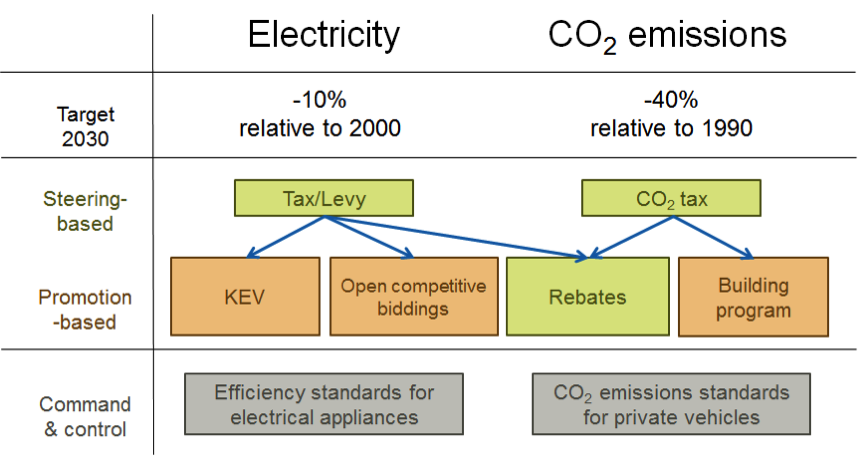Promotion or steering-based energy policy (ProSTEP)
The ProSTEP project assesses and compares promotion- and steering-based regulatory instruments as envisaged in the context of the "Energy Strategy 2050" in terms of their socio-economic redistributive and efficiency effects.
Whereas current policy measures rely heavily on promotion-based instruments such as command-and-control measures and subsidies, the future regulatory system, with an expected phase-in starting in 2020, is envisaged to be primarily based on market-related policy instruments. The necessary social and political consensus for the "Energy Strategy 2050" will also depend on the socio-economic distributional and efficiency implications of current and planned regulatory measures in the area of energy and climate policy.
The ProSTEP project uses quantitative and empirical economic analysis to assess the performance of promotion- and steering-based energy policy instruments. The project will contribute by:
- providing insights into the fundamental question of choice and design of energy and climate policy instruments in Switzerland for the second phase of the "Energy Strategy 2050"
- uncovering the hidden distributional effects of promotion and command-and-control measures compared to a possible future steering-based system of energy policy
- helping to identify robust policy designs in light of uncertainties about future economic and technological developments
- providing relevant impact analysis to stakeholders (e.g., households, companies, industries) at different levels (federal, cantonal and municipal).
The methodological framework combines concepts from (micro-) economic theory with applied tools from general equilibrium modelling and micro-simulation analysis of household behavior.
external page More details about the project are available
The ESC member responsible for this project is Prof. Dr. Sebastian Rausch, Professor of Economics / Energy Economics, ETH Zurich
The Chair of Economics/Energy Economics conducts applied economic research of energy and environmental issues with an emphasis on the costs, benefits, evaluation, and design of energy and environmental policies, especially economic incentive measures. Focal themes are climate change, including the design of cost-effective policies to reduce greenhouse gas emissions, and (macro-) economic aspects of the energy transition.
